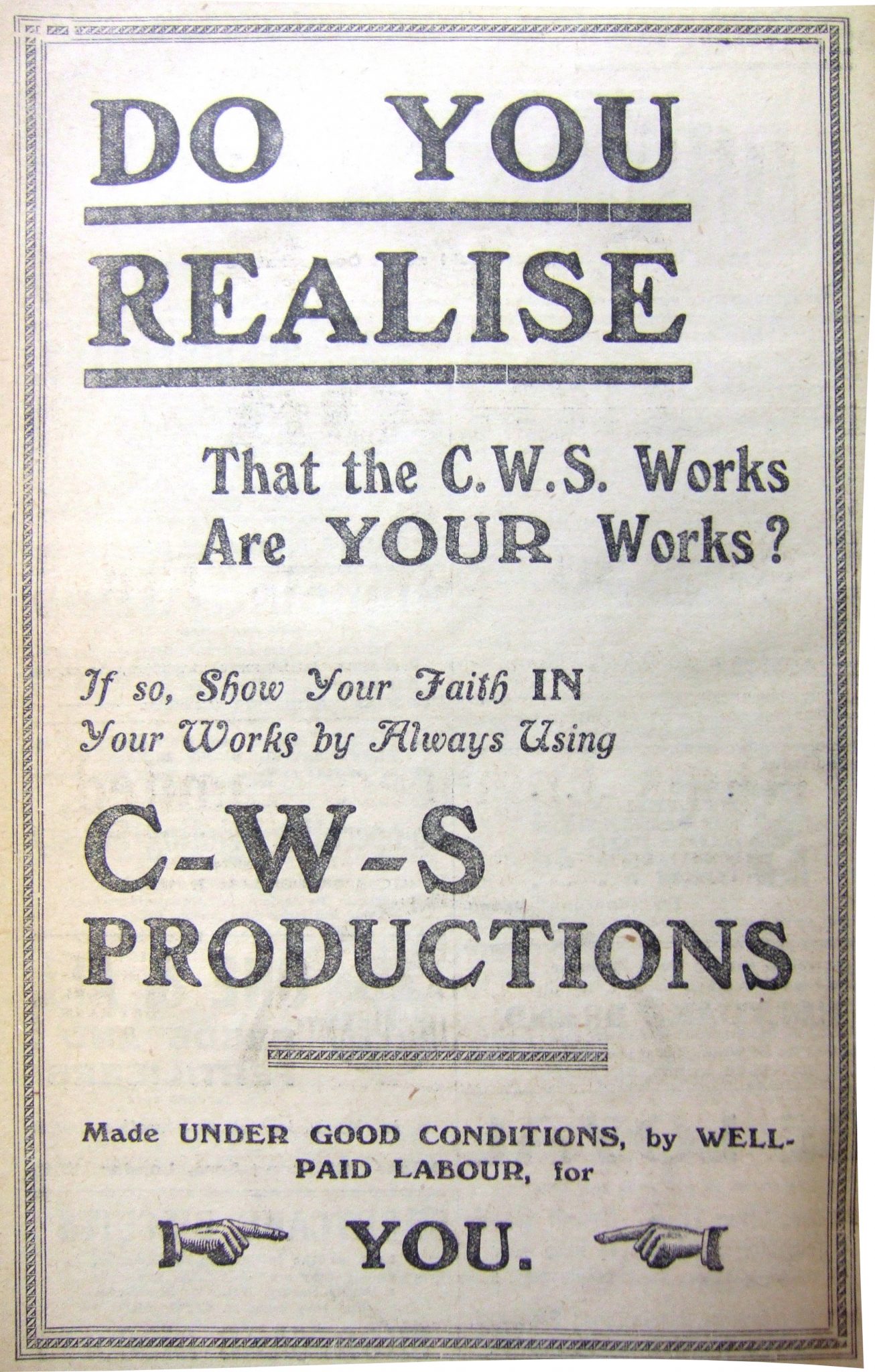As part of a regular monthly feature throughout the Co-operative College’s centenary year, archivist Sophie McCulloch explores interesting items from the past. This month she explores how co-operatives have always championed workers’ rights, equipping their employees with the skills and knowledge to make a difference in both their personal and professional lives.
The co-operative movement has always prided itself in taking care of its employees. In particular, many innovations taken by co-op societies at the start
of the 20th century pre-dated government legislation on working conditions and employee rights.
In 1901, for example, the Co-operative Wholesale Society (CWS) factory at Crumpsall, Manchester, became the first biscuit factory in the UK to introduce the eight-hour working day for its employees. In common with many other CWS factories, the Crumpsall factory had sports grounds and organised social activities for its workers. These were often points that were used in the CWS’s advertising, attracting prospective employees by making it stand out as a business that cared about its staff.
In 1907, following a recommendation from the Amalgamated Union of Co-operative Employees (AUCE), the CWS adopted a minimum wage of 24s per week for all adult males working in their offices, factories and warehouses. Campaigns from the Co-operative Women’s Guild, among others, facilitated the introduction of the minimum wage for women employees of co-op societies six years later.

Some societies also ran convalescent homes where their staff could recuperate from illness in comfortable surroundings, and colleagues also often had the opportunity to go on short holidays and excursions organised by their societies.
Such trips also had an educational purpose; for the CWS and other societies, the education of employees was key to them not only understanding what they were selling but also having an awareness about what made working for a co-op society different. Potential co-op managers were encouraged to learn about the history of the movement to be able to place it in context.
Some societies offered staff scholarships to the Co-operative College, where practical courses included salesmanship, bookkeeping and even window dressing; this ‘on the job’ training would then give staff the potential to progress their careers and equip them with the skills to train others. Today the College continues this legacy by running regular workshops for co-operative organisations and their staff, as well as offering eLearning packages and qualifications accredited by the chartered management institute.
- Click here for more from our workers special edition.
- More information about the College and how you can get involved in its centenary year is available at: co-op.ac.uk/centenary
- More College Centenary Archive features here